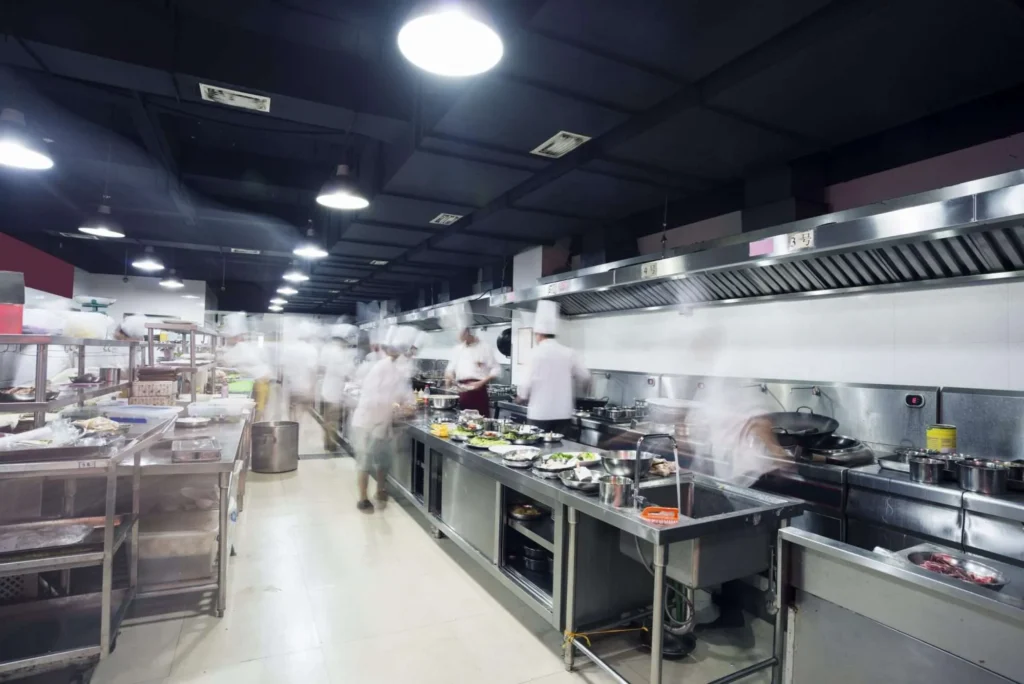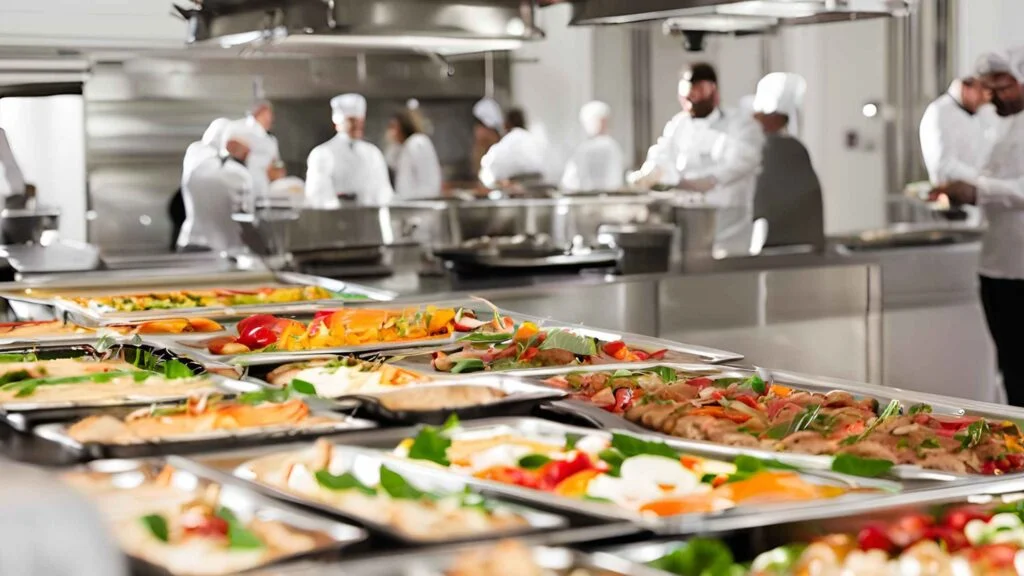When most people think about food services, their minds immediately jump to restaurants. But if you’re hosting a big event, a restaurant might not cut it—this is where a catering company comes in. A catering company is more than just a kitchen; it’s a whole production designed to serve large crowds, offering flexibility and logistical expertise. Let’s break down the key differences between a caterer and a restaurant, so you can see why they cater (pun intended) to completely different needs.
Before we proceed , you can order online or chat with us via WhatsApp for your next catering event :


1. The Size of the Kitchen and Operation
A restaurant kitchen is designed to produce freshly cooked meals for a reasonable number of customers at a time where fewer chefs are concerned with presentation and portion control. It is closer, contact is limited, and usually the customers who are served are ordered at the same site. On the other hand, a catering company works at a different level all together. Their kitchens are ordinarily much larger because they prepare food in large quantities.
These are not tiny establishments like the small ‘bistro’; in many of these establishments, they are speaking of industrial-scale kitchens with many chefs at once. They have to because, in most cases, they are serving hundreds if not thousands of people at the same time.
This means that one a catering kitchen could be preparing finger foods for a corporate event which usually have a special corporate catering menu, a five course meal for a wedding or international cuisine for a cultural event all day!
2. The Logistics Game between Catering Company vs. Restaurant
Although the handling of catering services is closely related to foods and drinks, it has a massive component in logistics. It is as far as delivery of the food to your occasion with some times using food trucks or other vehicles for handling temperatures of the foods.
Catering Business are already good for this because they are preparing all the things from the transportation until they make a buffet or dinner table setting on different locations. This mobility enables them to attend clients at a Marriage place, at a Reception venue, in Homes, wherever is needed.
Restaurants, on the other hand, are largely stationary. They’re all about that sit-down experience in-house. Sure, some offer takeout or delivery, but they don’t deal with the complexities of transporting large quantities of food and setting up remote dining experiences.
3. Menu Options: Local vs. Global
At your neighborhood restaurant, it is often the case that the menu is limited to those few delicious dishes. It could be that the restaurant has a short number of foods offered and these are centered round a theme or culture such as Italian, Chinese and other American food.
It’s explicit, selective, and it is designed to set up standardized eating procedure. While with a catering company the options are limitless. Catering firms give international menus since they have experienced offering so many different types of foods.
From Indian to Mediterranean, Thai to French, various catering companies sometimes develop their client’s own specific dishes. They are also versatile—can easily modify their offers according to the needs of customers: allergen and restrictions, preference and culture.
This flexibility gives a catering company an advantage over others in a position to handle many potential and varied people.

4. Staff and Equipment
A restaurant kitchen might have a head chef and a handful of line cooks, with waitstaff on the floor. It’s a smaller, tight-knit team focused on giving a great dining experience to patrons sitting right there.
In contrast, it is quite common for catering companies to employ a huge number of workers and get additional people in case of huge events. That may involve anything from having one or more chefs, kitchen helpers, waiters, baristas, and even event planners, depending on the size. Catering teams understand the best ways to work with stressful and energetic schedules that require feeding dozens and hundreds of guests. They arrive equipped with things like chafing dishes, ovens that can be transported, food trucks and serving facilities to maintain food quality and quality no mater the time of service.
5. Pricing: Lower for Bigger Orders
The differences between a catering company and a restaurant are not simply the difference between the size of the kitchen or the number of guests who will consume their food products. Being a big event, what it is really all about are such factors as organisational effectiveness, easy adaptability to change, choice of menus and, of course, the overall price advantage. The next time you need food for any event you will be happy you decided to hire a catering company to prepare food for 10 people or 1000.



